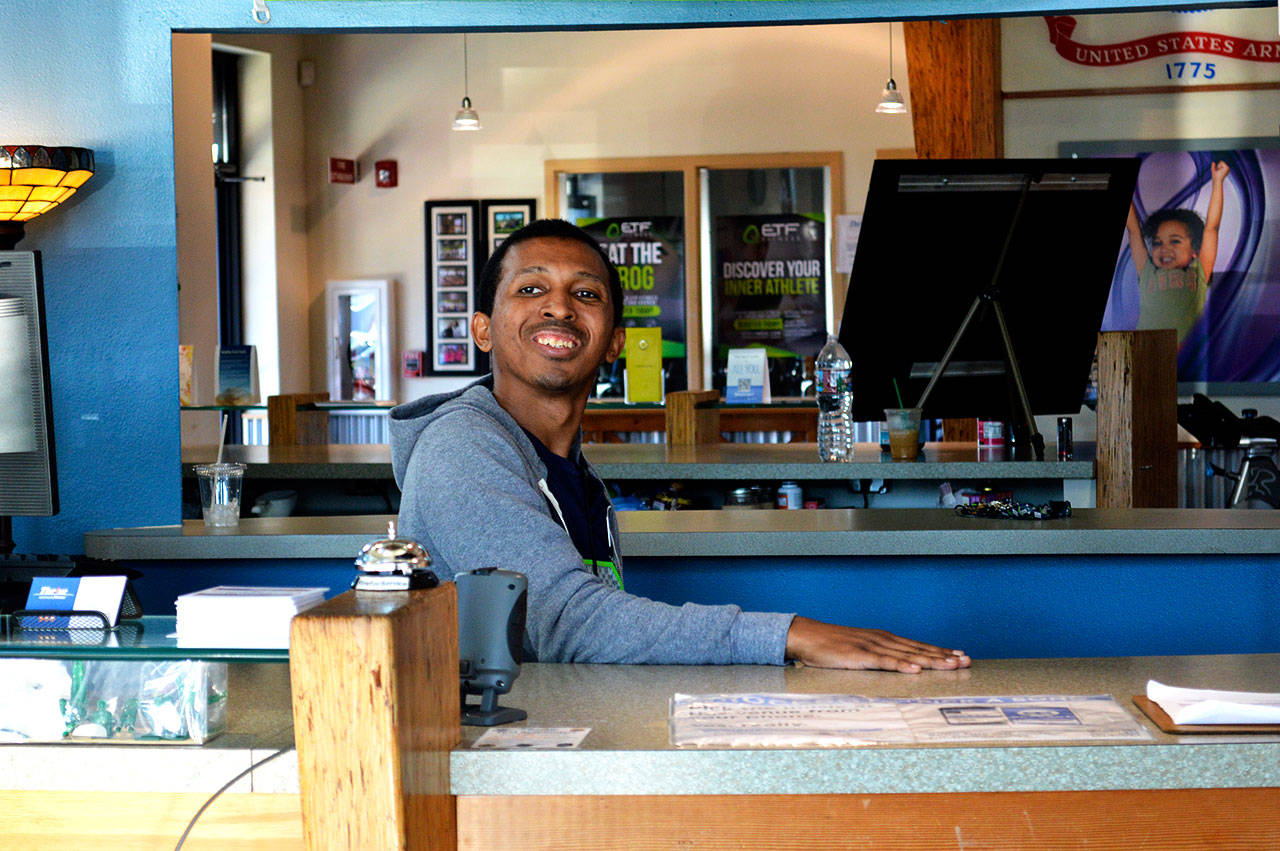Anyone who walks into Oak Harbor’s Thrive Community Fitness on a Tuesday or Friday afternoon will be welcomed with a wave, a warm hello and a thumb’s up if Geno Dogans is behind the counter. He knows almost everyone’s name who walks through the door.
Dogans, 29, can’t use much of the exercise equipment himself as a result of a traumatic brain injury sustained when he was 6. He received the injury from his father, who went to jail for child abuse. Dogans was in a coma for two months and had to use a wheelchair when he first came home. Dogans can walk without a wheelchair now, but his movement is limited by the partial paralysis of his left side and a discrepancy in the length of his legs. However, this didn’t stop him from pausing his News-Times interview to walk across Starbucks to greet people he knows who walk in — and he knows a lot of people.
“Going into the grocery store with Geno can be an event,” said Gina Riffel, who became Dogans’ foster mom when he was 7 years old.
Greeting customers at Thrive is his favorite part of the job, although he said he even loves cleaning the equipment. He got his position through Island County’s work program for adults with developmental disabilities. The county contracts with different agencies that specialize in placing adults with developmental disabilities in jobs that suit their interests, skills and abilities.
Dogans’ successful job placement isn’t rare in the area. Island County is one of only 10 counties in the state with over 70 percent of working-age adults — aged 21-61 — with disabilities who want jobs earning at least minimum wage.
“It’s a compliment to our community and specifically business owners who see the value and see that we’re a stronger community when we’re employing all those who have the skills to move us forward,” said Mike Etzell, developmental disabilities program coordinator.
Dogans first became employed through the county’s school-to-work program. Island County is the only county in the state with a 100 percent success rate. Individuals with developmental disabilities can go to school until age 21 and enter a three-year transition program. During the last year of the transition program, interested students and their families can work with the county to find employment. This is the fourth academic year of school-to-work, and an average of six or seven students typically participate, Etzell said. He expects that number will rise as more people learn about it.
He added the county is working to help individuals and families understand the “concept that employment is a realistic goal,” so that they “believe in that and work towards that.”
Dogans works two days a week for two hours at a time. He said his feet get tired by the end of the day, but he always brings a lot of energy when it comes to interacting with the customers. He said he loves encouraging the people working out, cheering “you can do it!”
Beyond working, Dogans stays heavily involved in the community. He is treasurer for the Island County chapter of People First, a nonprofit that advocates for people with disabilities.
“I’m really good with money,” Dogans said.
He also volunteers at the Family Bible Church, helping to provide childcare during the women’s bible study class. He is an avid Seahawks fan and often watches the game on TV with his roommate of eight years. He participates in the Special Olympics in bowling and track and field.
“He has a very full and satisfying life, and his job is part of it — it’s a big part of it,” Riffel said.
Dogans said his job has enhanced his quality of life, and his advice for others who have disabilities and want a job is simply, “go for it.”



